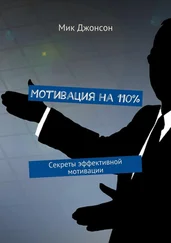Kazdin, Alan E., and Richard R. Bootzin. “The Token Economy: An Evaluative Review.” Journal of Applied Behavior Analysis 5 (1972): 343–372.
Kearney, William J. “Pay for Performance? Not Always.” MSU Business Topics (Michigan State University) 27 (1979): 5–16.
Keller, John M. “Development and Use of the ARCS Model of Instructional Design.” Journal of Instructional Development 10 (1987): 2–10.
Kelly, F. Donald, and John G. Daniels. “The Effects of Praise versus Encouragement on Children’s Perceptions of Teachers.” Individual Psychology 53 (1997): 331–341.
Kelman, Anna. “Choices for Children.” Young Children , March 1990: 42–45.
Kirsch, Irving. “The Politics of Reinforcement.” Psychotherapy: Theory, Research, and Practice 11 (1974): 311–316.
Kirschenbaum, Howard, Rodney W. Napier, and Sidney B. Simon. Wad-Ja-Get? The Grading Game in American Education. New York: Hart, 1971.
Kistner, Janet A. “Attentional Deficits of Learning-Disabled Children: Effects of Rewards and Practice.” Journal of Abnormal Child Psychology 13 (1985): 19–31.
Knitzer, Jane, Zina Steinberg, and Brahm Fleisch. At the Schoolhouse Door. An Examination of Programs and Policies for Children with Behavioral and Emotional Problems. New York: Bank Street College of Education, 1990.
Kobasa, Suzanne C. “Stressful Life Events, Personality, and Health: An Inquiry into Hardiness.” Journal of Personality and Social Psychology 37 (1979): 1–10.
Koestler, Arthur. The Act of Creation. New York: Dell, 1967.
Koestner, Richard, Richard M. Ryan, Frank Bernieri, and Kathleen Holt. “Setting Limits on Children’s Behavior: The Differential Effects of Controlling vs. Informational Styles on Intrinsic Motivation and Creativity.” Journal of Personality 52 (1984): 233–248.
Koestner, Richard, Miron Zuckerman, and Julia Koestner. “Praise, Involvement, and Intrinsic Motivation.” Journal of Personality and Social Psychology 53 (1987): 383–390.
Koestner, Richard, Miron Zuckerman, and Julia Koestner. “ Attributional Focus of Praise and Children’s Intrinsic Motivation: The Moderating Role of Gender.” Personality and Social Psychology Bulletin 15 (1989): 61–72.
Koestner, Richard, Miron Zuckerman, and Jennifer Olsson. “Attributional Style, Comparison Focus of Praise, and Intrinsic Motivation.” Journal of Research in Personality 24 (1990): 87–100.
Kohn, Alfie. The Brighter Side of Human Nature: Altruism and Empathy in Everyday Life. New York: Basic Books, 1990a.
Kohn, Alfie. You Know What They Say…: The Truth About Popular Beliefs. New York: HarperCollins, 1990b.
Kohn, Alfie. “The ABC’s of Caring.” Teacher Magazine , January 1990c: 52–58.
Kohn, Alfie. “Group Grade Grubbing Versus Cooperative Learning.” Educational Leadership , February 1991a: 83–87.
Kohn, Alfie. “Caring Kids: The Role of the Schools.” Phi Delta Kappan , March 1991b: 496–506.
Kohn, Alfie. No Contest: The Case Against Competition. Rev. ed. Boston: Houghton Mifflin, 1992a.
Kohn, Alfie. “Resistance to Cooperative Learning: Making Sense of Its Deletion and Dilution.” Journal of Education 174 (1992b): 34–52.
Kohn, Alfie. “Turning Learning into a Business: Concerns about ‘Quality Management’ at School.” Educational Leadership , September 1993: 58–61.
Kohn, Alfie. “By All Available Means: Cameron and Pierce’s Defense of Extrinsic Motivators.” Review of Educational Research 66 (1996): 1–4.
Kohn, Alfie. “In Pursuit of Affluence, at a High Price.” New York Times , 2 February 1999a.
Kohn, Alfie. The Schools Our Children Deserve: Moving Beyond Traditional Classrooms and “Tougher Standards.” Boston: Houghton Mifflin, 1999b.
Kolata, Gina. “They Should Give a Prize for Ambition.” New York Times , 12 October 1997: 4,6.
Kovach, Kenneth A. “What Motivates Employees? Workers and Supervisors Give Different Answers.” Business Horizons , September-October 1987: 58–65.
Kramer, F. Matthew, Robert W. Jeffery, Mary Kaye Snell, and Jean L. Forster. “Maintenance of Successful Weight Loss over One Year: Effects of Financial Contracts for Weight Maintenance or Participation in Skills Training.” Behavior Therapy 17 (1986): 295–301.
Kruglanski, Arie W. “Endogenous Attribution and Intrinsic Motivation.” In The Hidden Costs of Rewards: New Perspectives on the Psychology of Human Motivation , edited by Mark R. Lepper and David Greene. Hillsdale, N.J.: Erlbaum, 1978a.
Kruglanski, Arie W., Sarah Alon, and Tirtzah Lewis. “Retrospective Misattribution and Task Enjoyment.” Journal of Experimental Social Psychology 8 (1972): 493–501.
Kruglanski, Arie W., Irith Friedman, and Gabriella Zeevi. “The Effects of Extrinsic Incentive on Some Qualitative Aspects of Task Performance.” Journal of Personality 39 (1971): 606–617.
Kunda, Ziva, and Shalom H. Schwartz. “Undermining Intrinsic Moral Motivation: External Reward and Self-Presentation.” Journal of Personality and Social Psychology 45 (1983): 763–771.
Kutner, Lawrence. “As Motivator, the Carrot May Be as Bad as the Stick.” New York Times , 29 November 1990: C8.
Kutner, Lawrence. “A Little Bribery Can Help, But Don’t Make It a Habit.” New York Times , 16 December 1991: C11.
Kutner, Lawrence. “For Good Behavior, Show Good Behavior.” New York Times , 26 November 1992: C11.
Labich, Kenneth, and Kate Ballen. “Was Breaking Up AT&T a Good Idea?” Fortune , 2 January 1989: 82–87.
Lacey, Hugh M. “Control, Perceived Control, and the Methodological Role of Cognitive Constructs.” In Choice and Perceived Control , edited by Lawrence C. Perlmuter and Richard A. Monty. Hillsdale, N.J.: Erlbaum, 1979.
Lacey, Hugh, and Barry Schwartz. “The Explanatory Power of Radical Behaviorism.” In B. F. Skinner. Consensus and Controversy , edited by Sohan Modgil and Celia Modgil. Philadelphia: Falmer, 1987.
Laird, Martha. “Goodies for Good Work – Giveaways Have Gone Too Far!” Instructor , March 1986: 19.
Lancaster, Patrick R., ID. “Incentive Pay Isn’t Good for Your Company.” Inc. , September 1994: 23–24.
Lane, Robert E. The Market Experience. Cambridge: Cambridge University Press, 1991.
Lawson, Donna. “Applause! Applause! How to Handle Your Kids with Praise.” Redbook , June 1984: 86–87, 156.
LeCompte, Margaret. “Learning to Work: The Hidden Curriculum of the Classroom.” Anthropology and Education Quarterly 9 (1978): 22–37.
Lehman, Betsy A. “Spanking Teaches the Wrong Lesson.” Boston Globe , 13 March 1989: 27, 29.
Lepper, Mark R. “Dissonance, Self-Perception, and Honesty in Children.” Journal of Personality and Social Psychology 25 (1973): 65–74.
Lepper, Mark R. “Extrinsic Reward and Intrinsic Motivation.” In Teacher and Student Perceptions: Implications for Learning , edited by John M. Levine and Margaret C. Wang. Hillsdale, N.J.: Erlbaum, 1983.
Lepper, Mark R. “Microcomputers in Education: Motivational and Social Issues.” American Psychologist 40 (1985): 1–18.
Lepper, Mark R. “Motivational Considerations in the Study of Instruction.” Cognition and Instruction 5 (1988): 289–309.
Lepper, Mark R., Lisa G. Aspinwall, Donna L. Mumme, and Ruth W. Chabay. “Self-Perception and Social-Perception Processes in Tutoring: Subtle Social Control Strategies of Expert Tutors.” In Self-Inference Processes: The Ontario Symposium , vol. 6, edited by J. M. Olson and M. P. Zanna. Hillsdale, N.J.: Erlbaum, 1990.
Читать дальше
Конец ознакомительного отрывка
Купить книгу

![Олег Абакумов - Третье отделение на страже нравственности и благочиния [Жандармы в борьбе со взятками и пороком, 1826–1866 гг.]](/books/27001/oleg-abakumov-trete-otdelenie-na-strazhe-nravstven-thumb.webp)










